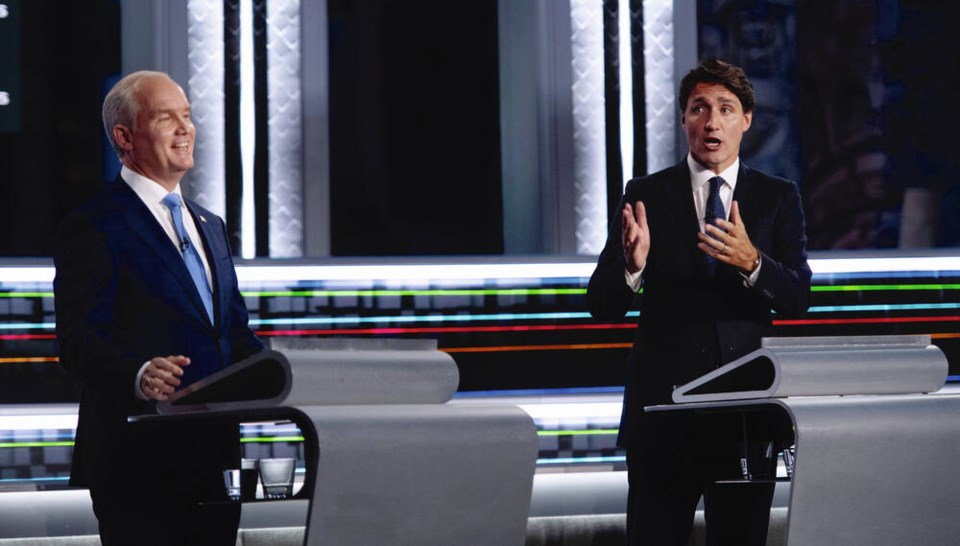It has been a pretty dispiriting election all round. It was called in the midst of a pandemic for no better reason than that the Liberals want to hang on to power. The campaign has been lacklustre, the debates uninspiring and badly organised and, at the end of it all, it seems to me we may well be right back where we started: a minority government.
If that happens, given the global and national emergencies we face — of which more below — could we perhaps see an agreement between two or more parties, such as the one the B.C. Greens struck with the B.C. NDP, or even a coalition government?
If the latter, hopefully we won’t see a repeat of the ignorant and undemocratic posturing of Stephen Harper in 2015, when he tried to persuade people that a coalition government was somehow improper, if not unconstitutional.
Just to be clear, while the leader of the party with the largest number of seats gets to approach the Governor General and ask for the chance to form a government, they must then demonstrate they can command a majority in the House.
If they can’t, the leader of a party that believes they can command the confidence of the House can ask to be allowed to seek that confidence and form a government. This is completely legal and constitutional — it’s how the system is meant to work. And coalition governments are particularly important in times of national crisis, where we all need to be working together.
Which brings me back to my point in my column two weeks ago about the planet-sized elephant in the election room. Unfortunately, none of the parties that are likely to form the government seem to understand the global and national emergencies we face.
These emergencies were underlined yet again last week by António Guterres, the UN Secretary General. In a Sept. 10 speech to the UN General Assembly, he presented a report — “Our Common Agenda” — requested by the General Assembly in 2020 as part of the marking of the UN’s 75th anniversary. His remarks are worth quoting at some length.
He began by stating: “On almost every front, our world is under enormous stress. We are not at ease with each other, or our planet.”
He went on to identify the main elements of the crises we face, beginning with COVID-19. But also, he noted: “From the climate crisis to our suicidal war on nature and the collapse of biodiversity, our global response has been too little, too late. Unchecked inequality is undermining social cohesion, creating fragilities that affect us all. Technology is moving ahead without guard rails to protect us from its unforeseen consequences.”
“Global decision-making,” he continued, “is fixed on immediate gain, ignoring the long-term consequences of decisions — or indecision … As a result, we risk a future of serious instability and climate chaos.” And, he added, “Business as usual could result in breakdown of the global order, into a world of perpetual crisis and winner-takes-all.”
Canada, of course, is part of this, and as a high-income country we contribute disproportionately to these emergencies. This is no time for business as usual in Ottawa; we have to treat the situation with the seriousness it deserves. That may well require the creation of a coalition government to address these national and global crises.
Such a government should take a leaf — in fact, several leaves — from Mr. Guterres’ book. For example, he proposes a Summit of the Future “to forge a new … consensus on what our future should look like, and how we can secure it” and he plans to appoint “a Special Envoy for Future Generations, to give weight to the interests of those who will be born over the coming century,” as well as establishing a new UN Youth Office and a Futures Lab to report on emerging trends and risks.
All these ideas — and others too numerous to mention — are worth replicating at a national level, as a matter of urgency. Because if the governing parties cannot recognize, accept and address these global and national crises, we all lose, especially young people and future generations.
Dr. Trevor Hancock is a retired professor and senior scholar at the University of Victoria’s School of Public Health and Social Policy



